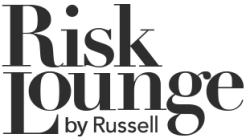
If the offshore market did not have enough to worry about a new study reveals that the oil and gas industry supply chain – which includes oil companies, contractors and sub-contractors – does not perceive the full extent of the risks that HIV/AIDS, tuberculosis (TB) and malaria pose to its workforce, productivity and profitability.
The study – conducted by management consulting firm Booz & Company in partnership the Global Business Coalition on HIV/AIDS, Tuberculosis and Malaria (GBC) – outlines why the oil and gas industry should improve its understanding of the hazards posed by these three epidemics and makes a series of recommendations for how to make health a priority.
The GBC said many major oil and gas companies work in less developed regions of the world – such as West Africa and Asia – where HIV, TB and malaria are highly problematic health issues that can pose a strong risk to worker productivity.
“Oil and gas activity is likely to increase in many of these regions over the next decade. The industry employs tens of thousands of young, male migrant labourers who work on a temporary contract basis at remote project sites with lack of adequate housing, healthcare and transport – conditions that contribute to the transmission of these diseases,” it said.
“HIV/AIDS, TB and malaria pose a clear and present risk to the energy industry supply chain, yet many companies do not fully appreciate the nature or extent of this looming challenge,” said Shuma Panse, GBC senior manager for membership and advisory services, and an author of the study. “The good news is there are easy and affordable ways to protect workers and company productivity. The first step is understanding the risk, and engaging with the majors. They can even make an effective worker HIV/AIDS policy a contractual requirement of doing business.”
Among the report’s key findings, health issues lagged behind safety as the top priority for oil companies and their contractors.
“Oil and gas companies base their engagement on health, safety and the environment on their perception of risk,” it added. “While safety issues are perceived to have the greatest risk, the perception of HIV, TB and malaria risk for companies with significant operations in disease-endemic regions is not often in line with actual prevalence and incidence rates.”
According to the Booz/GBC study, risk perception was rated as the most important driver behind health priorities by both the oil companies (50%) and their contractors (71%). However, HIV, TB and malaria were not present in any of the interviewees’ top five most pressing health issues at the global level. Instead, issues such as stress, obesity and heart disease were a greater priority.
According to the study, while several major oil companies are taking some proactive steps to protect their workforces from these diseases, the same cannot be said for their supply chains – compromising the work that the majors are doing.





